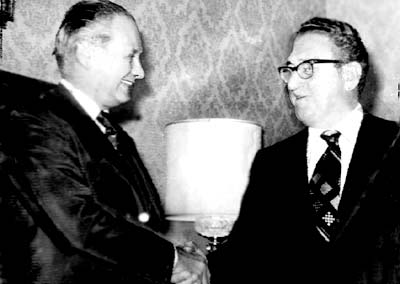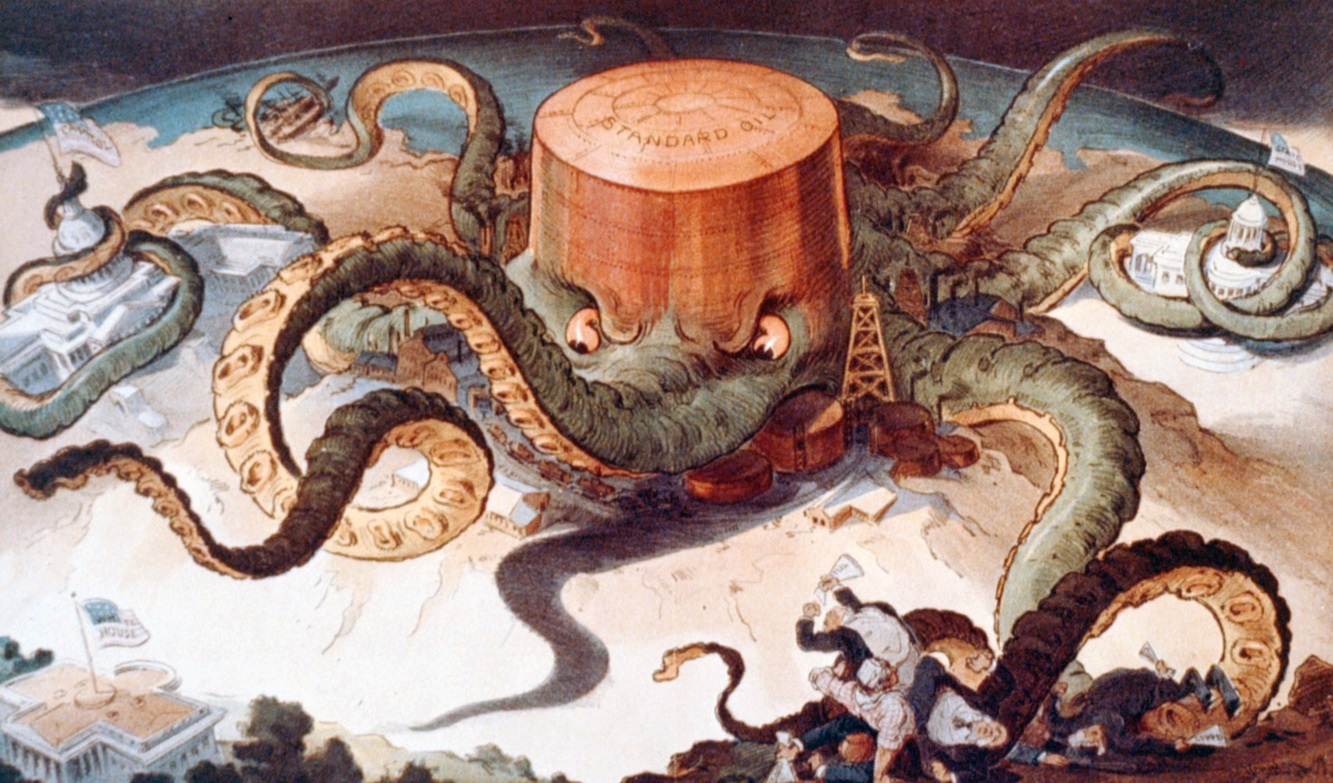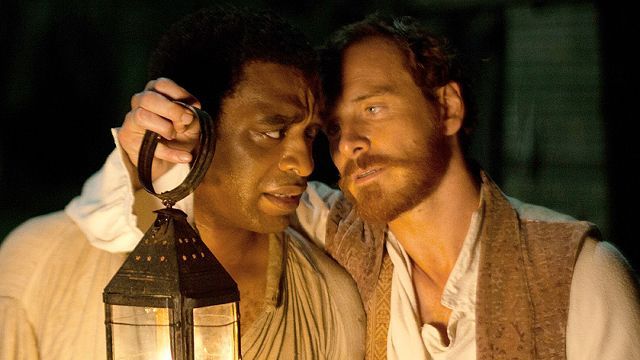
River of Song.

Haunting the Web Since 1999


Another file for the war crimes prosecution: New evidence comes to light that Secretary of State Henry Kissinger, among his many other misdeeds, egged on Argentina’s Dirty War. “Kissinger watchers have known for years that he at least implicitly (though privately) endorsed the Argentine dirty war, but this new memo makes clear he was an enabler for an endeavor that entailed the torture, disappearance, and murder of tens of thousands of people.”

Er, yeah, not sure what they were thinking there. In any event, in honor of this dubious messaging, Popular Science offers eight historical examples of octopi taking over the world. Above is Standard Oil, smothering both ends of Congress with its undulating, oleaginous reach.

In Grantland, Wesley Morris ably discourses on Steve McQueen’s 12 Years a Slave, thus far the movie of the year (and I say that as someone who didn’t think much of Hunger or Shame.) As I said on Twitter, this film should come as a free digital download with any Lee Greenwood CD (or, for that matter, any Gods and Generals DVD.) “A different movie might have taken this story and turned it into a battle between Epps and the white men who feel a duty to free Northrup…The power of McQueen’s movie is in its declaratory style: This happened. That is all, and that is everything.”

The man in the black pajamas, Dude: Upon the latter’s death at the age of 102, Senator John McCain remembers General Vo Nguyen Giap, architect of Dien Bien Phu and Tet. “Countries, not just their armies, win wars. Giap understood that. We didn’t. Americans tired of the dying and the killing before the Vietnamese did. It’s hard to defend the morality of the strategy. But you can’t deny its success.”

Time? What time do you think we have? As has been going around the Interweb, a series of intriguing timelines ranging from last year to the age of the universe. Among the interesting facts pointed out: “The T-Rex is closer in time to seeing a Justin Bieber concert than seeing a live stegosaurus.” Also: “When we refer to the most ancient of ancient history, we are still just talking about…less than 3% of the time that humans who look like us have existed.”

In Slate, Paul Bogart describes (and laments) the end of night all across the world. “With at least 30 percent of all vertebrates and more than 60 percent of all invertebrates worldwide nocturnal, and with many of the rest crepuscular, [the] implications are enormous.”
“It is implausible to imagine that, were King to be raised from the dead, he would look at America’s jails, unemployment lines, soup kitchens or inner-city schools and think his life’s work had been accomplished. Whether one believes that these inequalities are caused by individuals making bad choices or by institutional discrimination, it would be absurd to claim that such a world bears any resemblance to the one King set out to create.” As The Nation‘s Gary Younge reminds us, today should not be about resting on laurels by any means: There is work to do.
Hello all: Back on the mainland as of 48 hours ago. In case the Election of 1924 talk of a few months past whetted your appetite for more radio ramblings about the dissertation, I discussed Uphill All the Way and 1920’s politics last night with Jay Ackyroyd of Virtually Speaking. Embed above — enjoy.